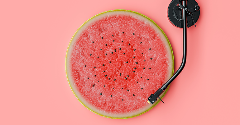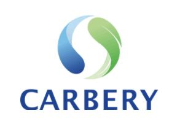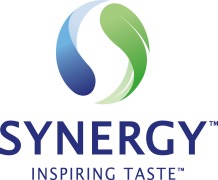News
Mainstream trends transforming the sports nutrition market
9 May 2018Mainstream consumers have become more interested in sports nutrition, bringing better flavour and more diverse ingredients to the sports nutrition sector.
European consumers are living longer, many have become more interested in healthy lifestyles, and endurance sports like marathon running, cycling and triathlons have become increasingly common. The knock-on effect for the sports nutrition sector is a broader range of consumers, from amateur athletes looking to fuel their exercise or improve recovery, to more general consumers seeking a protein or energy boost.

Sports nutrition companies increasingly are breaking the market down into demographics, with products that focus on healthy aging, sporty teens or active women, for example. Boundaries have also blurred between specific sports nutrition products and those intended for general, everyday consumption, such as protein-fortified pancakes, smoothies and cereals that have escaped the supplements aisle to be found alongside mainstream packaged foods.
Beyond whey- and soy-based protein powders, a growing number of more palatable options like bars, shakes and drinks are based on plant proteins like pea, hemp or flaxseed.
While 80% of the sports nutrition category is still focused on protein, according to Euromonitor International, other ingredients are also coming to the fore as the sector has moved to the mainstream. Probiotics are among the ingredients making their way into protein products, a trend that Mintel highlighted in its Global Food & Drinks Trends report in 2016. Probiotics company Ganeden, for example, has said that more than half of all probiotic products launched with their partners in 2017 were protein-based.
Hardcore gym-goers and athletes have always been more results-driven than general consumers, who tend to focus on taste and cost ahead of nutritional benefits, according to the International Food Information Council. Therefore, one of the biggest effects of sports nutrition entering the mainstream has been improved flavour.
Ingredients companies have collaborated to ensure functional sports products taste as good as possible, thereby extending their appeal. At Hi Europe 2016, for instance, Carbery showcased beverages and snacks made with its latest hydrolysed whey protein ingredient, which also featured bitterness masking technology from flavours company Synergy.
One thing is certain: long gone are the days when sports nutrition – and protein in particular – was targeted at bodybuilders alone. Trends in the sports nutrition sector increasingly reflect broader food trends, such as increased demand for natural, plant-based, clean label or organic products – while also delivering on promises to improve performance.
Related news

Retail landscape lacks nutritious and affordable food, says ATNi
30 Dec 2025
A rapid increase in modern food retail has given retailers growing influence over consumer diets, according to global non-profit ATNi’s latest assessment.
Read more
Debate over ban on ‘meaty’ names for plant-based products reaches stalemate
26 Dec 2025
The debate over a ban on plant-based products using “meaty” terms has reached a stalemate, leaving manufacturers in limbo and still facing overhauls to their marketing and packaging.
Read more
Multi-sensory food and drink products to gain traction in 2026
16 Dec 2025
Trend forecasters predict that sensory elements will play a larger role, helping food and beverage brands differentiate themselves in a competitive market in 2026.
Read more
Big appetite for M&A between European and US food and drink companies
3 Dec 2025
Persistent tariffs on EU food and beverage exports have helped drive record levels of M&A activity between European and US companies this year, according to analysis by ING.
Read more
Non-UPF Program extends certification scheme to entire food industry
30 Nov 2025
The Non-UPF Program has extended its certification scheme to the wider food sector, championing a move towards healthier consumption habits.
Read more
Lancet study links UPFs to chronic disease risk
26 Nov 2025
UPFs are consistently associated with an increased risk of diet-related chronic diseases, according to a comprehensive review of global evidence in The Lancet .
Read more
Concerns swirl around cinnamon’s compliance with EU law
25 Nov 2025
Cinnamon may be a top functional ingredient, but it needs stronger protocols to ensure it meets EU food safety laws and quality standards, say researchers.
Read more
Oat Barista: Innovation for game-changing beverages
20 Nov 2025
Oat Barista is a clean label, sustainable, and innovative drink base specifically designed to create the perfect foam in one single ingredient.
Read more
How younger consumers are redefining ingredient choices and rejecting brand loyalty
18 Nov 2025
Gen Z and millennial consumers’ preferences for transparency, functionality, and purpose are “redefining the very nature of consumption itself”, says SPINS.
Read more
Hybrid formats and flexible positioning to disrupt category norms in 2026
17 Nov 2025
Trend forecasters expect food and drink to move more fluidly across occasions, functions, and formats as consumers seek versatility, novelty, and convenience.
Read more


